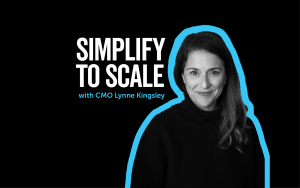“There’s no such thing as bad publicity.” That may be, but at the end of the day, we know that the bottom line (specifically new revenue generated) is our utmost goal with marketing efforts. And a clear understanding of which keywords bring us the most new revenue is crucial.
A clear understanding of your Return on Investment (ROI) in the Search Engine Optimization (SEO) portion of your budget will help you clear out the deadwood and focus on the search terms that bring you the most business. With this blog, we’re going to look at basic ROI formulas and explain how they relate to your marketing budget.
ROI Basics
The basic ROI formula is: Net Profit / Total Investment * 100 = ROI. That’s a great starting point if this is your first time delving into the marketing math associated with SEO.
- Keeping the numbers small for clarity, let’s imagine you spent $1,000 on professional SEO services during January 2019.
- Your website traffic and sales did improve, to the tune of a $5,000 increase in sales revenue over the course of a year.
- 5,000 / 1,000 = 5
- 5 * 100% = 500%
- Your ROI on SEO was 500%
But this rabbit hole goes much deeper!
More Complicated ROI Concepts
Having realized the potential results that SEO work can bring to your bottom line, you have more professional optimization work done this year. You’ve made a note of the keyword searches bringing in the most business, and there are a few search categories where your website doesn’t yet rank, but your competitors do.
So this year, you spend an additional $2,000, hoping for that glorious 500% return. Come the end of the year, you DO see an increase in sales. But not the $10,000 you were hoping for. Instead, you see that your website made an additional $6,000 over last year. This is still considerable growth, with an ROI of 300%. Your SEO investment is working. But why the difference in return?
Searcher Intent: SEO Keywords for Buying vS. Keywords for Research
American consumers have better education and more access to technology than ever before.
- Searchers may use the internet for weeks, even months, to research products before they finally take the plunge and purchase.
Let’s imagine your business is a high-quality used car lot, which specializes in selling Subaru cars. Your business doesn’t need to appear in vague keyword searches like “cars.” You’d be better off optimizing your website for specific locations and brands. A search for “used Subaru in LA” is going to convert to sales much faster than a search for “used cars” and even “used cars LA.”
A more targeted keyphrase will put your website – and your products – in front of consumers who are further along their research path. These consumers are closer to converting, specifically by making a purchase, and you’ll have improved your chances of converting them by presenting them with the right pages responding to the right searches.
What if I Haven’t Thought Much About SEO?
Ironmark is here to help! Search engine optimization is no buzzword. It’s a pillar of modern marketing success. We know our websites and product pages need to be available to our target audiences, and there are dozens of ways to accomplish that. Modern marketing has evolved to focus on internet advertising and we’re here to help.
SEO is always evolving, and requires maintenance and dedication. The professional marketing staff at Ironmark is ready to coach you through the process of optimizing your website for the right keywords and monitor your website’s performance through real-time, data-driven analytics. Reach out today to learn more about SEO and tackling that all-important ROI.




